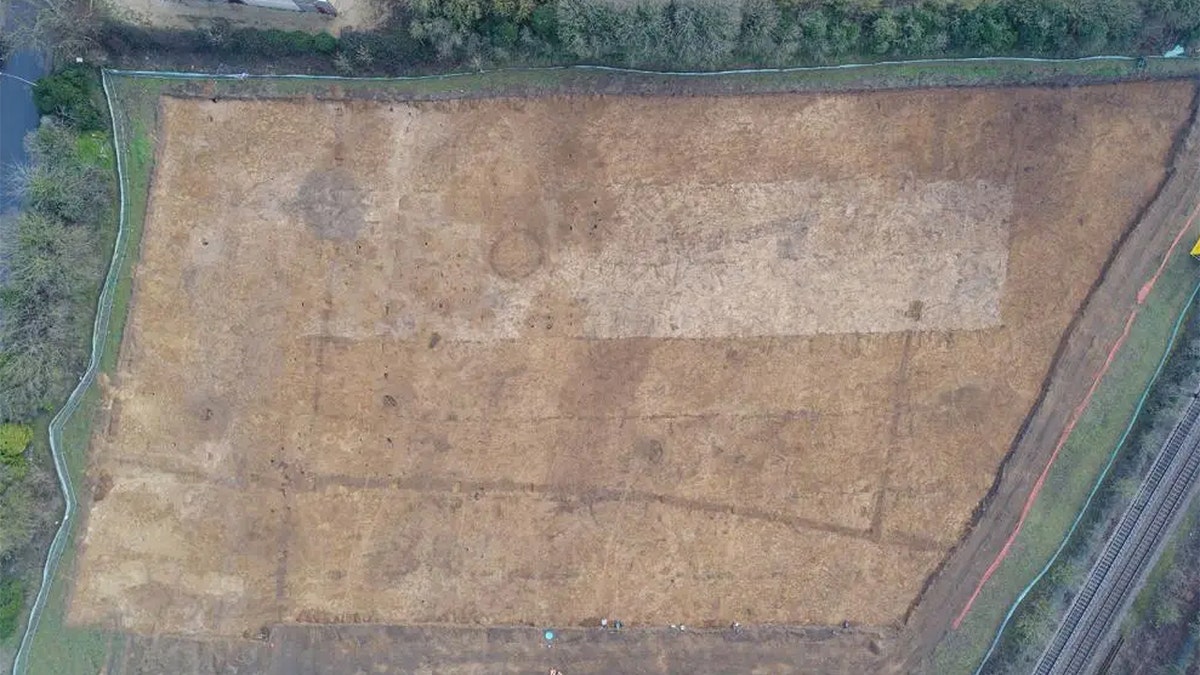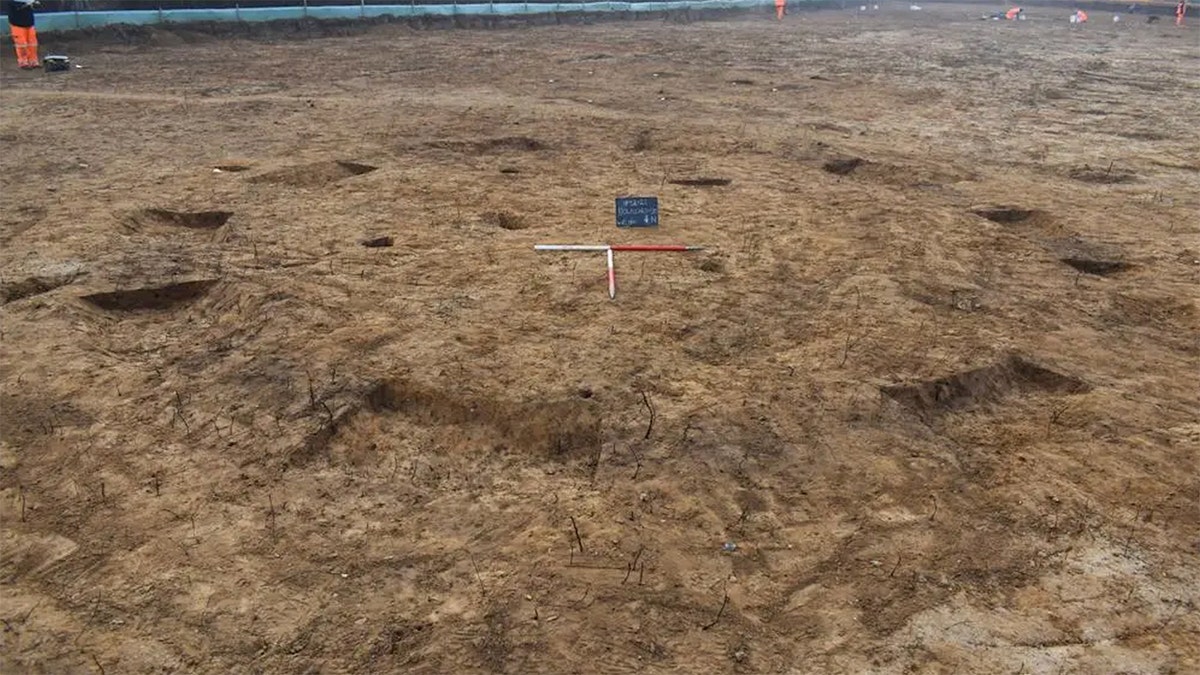An ancient Bronze Age settlement was recently uncovered by archaeologists in the United Kingdom while a highway was being built.
The Suffolk City Council described the site as a "Late Bronze Age settlement and cremation cemetery" that dates back 3,000 years; they shared the information in a press release dated mid-April. In Britain, the Bronze Age lasted from 2500 B.C. to roughly 800 B.C.
The excavation took place on the construction site of Europa Way. The highway was built to link roads in northwest Ipswich, a port town in Suffolk.
DOZENS OF ANCIENT SKELETONS FOUND IN HEART OF BUSTLING CITY: 'HARD TO IMAGINE'
"Intensive Late Bronze Age activity at Europa Way was located on the glacial outwash gravels, which outcrop on the lower slopes of the northern side of the valley of the River Gipping," the city council said in a statement.
"There is a rich record of prehistoric land use on the lighter soils of the terrace and outwash gravels, which flank the River Gipping’s course upstream of Ipswich."

The 3,000-year-old Bronze Age settlement was found during construction of the Europa Way road in Suffolk. (Oxford Archaeology via Suffolk City Council)
Archaeologists uncovered 18 burials dating back to 1200 B.C., along with remains of various structures and a host of ancient artifacts.
"The postholes of two roundhouses, numerous four and six-post structures, and two ring-gullies were found at the site near Bramford and Sproughton, along with multiple pottery finds," the city council's statement read.
Archaeologists also found cremation urns, a copper-alloy pin and fragmented fired clay weights.
"This evidence indicates a settlement with a mixed agricultural economy including cereal production, and breeding and raising cattle."
Archaeologists also found cremation urns, a copper-alloy pin, fragmented fired clay weights and a clay spindle whorl, along with a "rare example of a flint quern, used for hand-grinding grain into flour."
EXPERTS SHOCKED BY ANCIENT KING ARTHUR MANUSCRIPT FOUND TUCKED INSIDE BOOK: 'SURVIVED THE CENTURIES'
Experts from Cotswold Archaeology, Oxford Archaeology and Suffolk County Council’s Archaeological Service all participated in the excavation, with Oxford Archaeology taking the lead on the fieldwork.
In a statement, Oxford Archaeology senior project manager Chris Thatcher said that the discovery was important in understanding "prehistoric activity along this stretch of the Gipping valley."

Archaeologists found interesting artifacts during the dig. A distinctive feature of the cremation cemetery was "how close it was to the buildings and daily life." (Oxford Archaeology via Suffolk City Council)
"Some aspects of the settlement remains are of considerable significance in the wider regional context, especially the substantial pottery finds, the cremation cemetery, and the way that the agricultural landscape was organized," the archaeologist said.
For more Lifestyle articles, visit foxnews.com/lifestyle
Thatcher added that a distinctive feature of the cremation cemetery was "how close it was to the buildings and daily life."
"[T]he inhabitants of the settlement were likely buried close by," he also said.
"There is a rich record of prehistoric land use."
"This is part of an emerging pattern of Late Bronze Age burial activity, and appears to mark a shift from the Middle Bronze Age preference for major cemeteries, typically within extensive field systems, or the deceased being interred at earlier-established ancestral monuments."
CLICK HERE TO SIGN UP FOR OUR LIFESTYLE NEWSLETTER
The latest announcement comes on the heels of other discoveries at the site, ranging from millennia-old Neolithic pottery to Iron Age currency and medieval artifacts.

The Europa Way road services Ipswich, a borough in the United Kingdom, seen here. (Getty Images)
In a statement, Suffolk County Council cabinet member Philip Faircloth-Mutton hailed the discovery as showing Suffolk's "unique history, and add[ing] another layer to our understanding of what life was like for previous generations in our part of the world."
CLICK HERE TO GET THE FOX NEWS APP
"This is why it is important that the council’s Archaeological Service is here to help record and preserve our past," Faircloth-Mutton said.
"As important and interesting as finds are today, who knows how significant this information might be in generations to come."










































